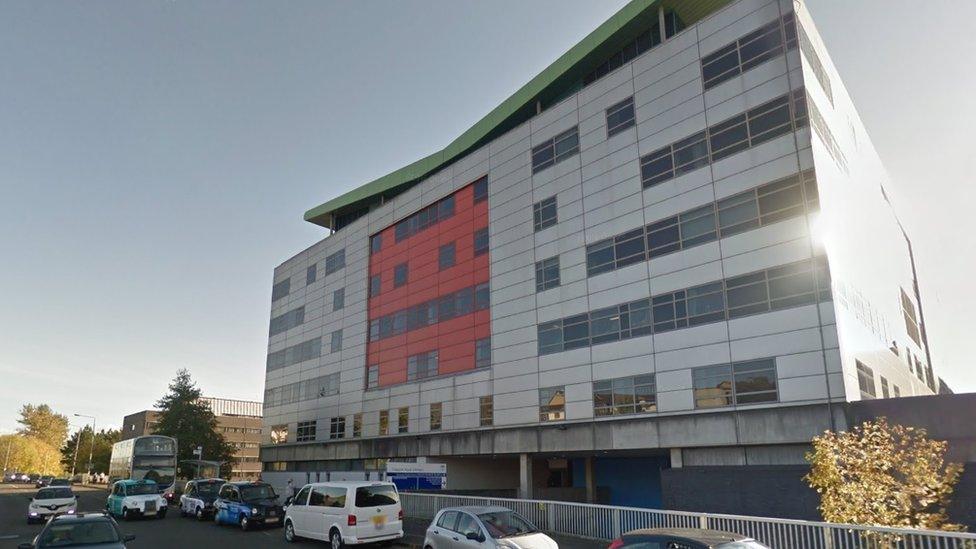Princess Royal Maternity Hospital: Dead babies had 'extremely rare' infection
- Published

The babies has been born extremely prematurely at the Princess Royal Maternity Hospital
Two newborn babies who died in a Glasgow maternity hospital had been infected with a rare bacterium that has never been seen before in Scotland.
NHS Greater Glasgow and Clyde announced on 31 January that the two premature babies had died at the Princess Royal Maternity Hospital.
The health board has now confirmed they had been infected with a rare strain of the staphylococcus aureus bacterium.
The strain has only been recorded in two other countries in the world.
Staphylococcus aureus is a type of skin bacterium found in areas such as the skin, nasal cavities and respiratory tract which is often harmless but can cause a range of serious infections if it enters the bloodstream.
It is one of the most common causes of hospital-acquired infections - but the type 11164 strain which infected the babies at the Princess Royal is highly resistant to the two antibiotics that are normally prescribed.
It is also resistant to the skin cleaning agent routinely used in hospitals across the UK.
'No further cases'
The health board has said that the two babies who died had been "extremely poorly" due to their early births, with infection being "one of a number of contributing causes in both deaths".
A spokeswoman confirmed it was the first time the strain had been identified in Scotland.
She added: "Previously these cases have only been identified in two other countries worldwide.
"We have continued to screen babies in our three neonatal units and there have been no further cases of infection.
"We have also put in place a number of further infection control measures including staff screening, the prescribing of different antibiotics and the introduction of a new skin cleaning agent".
The two babies that died in the hospital's neonatal unit were said to have been born "extremely prematurely". A third premature baby in the unit was also infected, but was said at the time to be in a "stable" condition.
The health board has also confirmed that four other babies were found to have the type 11164 strain on their skin, but had not been infected.
An incident management team was set up at the hospital on 24 January after the bacterium was detected, with a deep clean also carried out in the neonatal unit.
Separately, the health board is awaiting the results of investigations into the deaths of two patients at the Queen Elizabeth University Hospital in Glasgow after they contracted an infection linked to pigeon droppings.
The Crown Office is examining the two cases, one of which was a 73-year-old woman who died at the hospital in January and the other a 10-year-old boy who died in December.